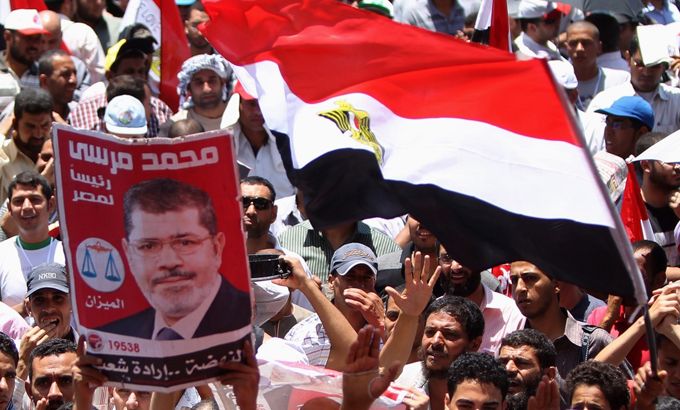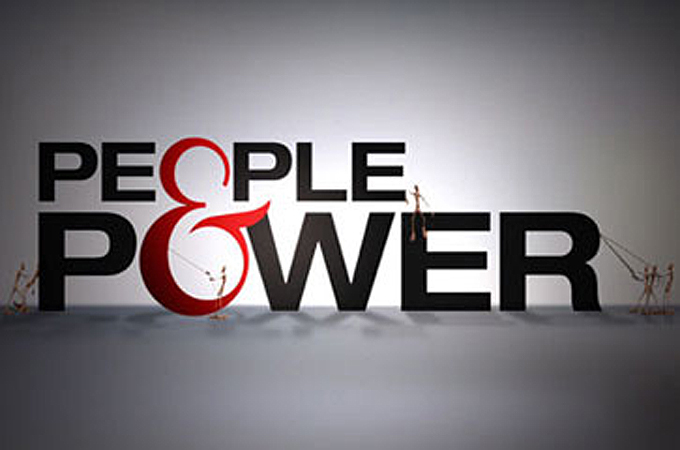
Egypt: The Future Awaits
People & Power travels to Egypt to see how the April 6th activists have been faring since Mohamed Morsi’s election.
It has been 20 months since the revolution that toppled Hosni Mubarak, Egypt’s president, and four months since his successor was elected. But when the Muslim Brotherhood’s Mohamed Morsi became the country’s first democratically elected head of state on June 24, 2012, there were still many grievances outstanding.
For over one year, activists who flooded Cairo’s Tahrir Square at the outset of the Arab awakening, had been forced to return time and again to keep the pressure on the country’s interim military rulers to hold an election.
Keep reading
list of 4 itemsWhat challenges do Turkey, Egypt face in restoring ties?
Egypt upholds life sentences for 10 Muslim Brotherhood figures
Egypt and Turkey hold ‘frank’ official talks, first since 2013
In the meantime many of the issues that had first brought them onto the streets in January 2011 – a crumbling economy, corruption and political repression high among them – were still a long way from being resolved.
Even as Morsi became president it was clear that many secular and liberal Egyptians had voted for him only because he was marginally more palatable than the alternative, Ahmed Shafiq, an army man who had been Mubarak’s last prime minister. The anxiety uppermost in the secularists’ minds – if not those of Morsi’s equally passionate Muslim Brotherhood supporters – was whether he would be principally concerned with taking the country down an Islamist path or if he would focus his energies on uniting the country and dealing with the problems that had beset Egypt for so long.
For the last two years, People & Power has been following one key group of activists through the uprising and its aftermath. The predominantly secular April 6th youth movement was instrumental in mobilising some of the first mass demonstrations in Tahrir Square last year and ever since, led by one of its founders, Ahmed Maher, its followers have sought to protect the revolution they helped to bring into being.
Determinedly non-violent and driven more by a desire for change and democracy than by a specific unifying political ideology, they played an important role – through their ability to help generate massive numbers in the centre of Cairo – in bringing about the election this summer and keeping pressure on the Military Council, a lurking presence behind the scenes. But then they were faced with a choice: Who exactly to back in the poll? After considerable internal debate, and not a little dissent from among their ranks, they chose Morsi because he was not the de facto candidate of the old regime – though with some reservations about what it would mean for the country’s future.
We have now gone back to Egypt to find out how they have been faring since Morsi’s election and to see whether the compromises that come with a fledging post-revolution democracy have been worth making. As our filmmakers (Karim Shah, Eva Dadrian and Elizabeth Jones) discovered, over the last few months there have been some successes. Ahmed Maher, for example, found himself appointed to the Constitutional Assembly, charged with drawing up a new political map for the country.
Meanwhile, April 6th activists have continued to maintain a presence on the streets, sometimes through protests, sometimes by demonstrating their newfound freedoms in street corner debates and recruiting new members to the cause. But the situation remains tense. There has been little attempt yet by the new government to bring to justice many of the senior figures behind the violent attempted crackdowns of protestors last year – which is a key April 6 ambition.
Maher has struggled to get his voice heard in the assembly, from which a number of other secular delegates have already withdrawn in protest at moves by ultra-conservative Salafists to introduce Sharia. He clings on in the belief that the interests of the country’s youth have to be represented, but some of his colleagues are more disillusioned – their voices becoming more strident, their patience at the slow pace of economic and political improvement wearing a little thinner every day.
Egypt’s future beckons, but as yet it is still uncertain what it holds.
Click here to watch Egypt: Seeds of Change
Click here to watch Egypt: Return to Tahrir
People & Power can be seen each week at the following times GMT: Wednesday: 2230; Thursday: 0930; Friday: 0330; Saturday: 1630; Sunday: 2230; Monday: 0930. Click here for more on People & Power. |
